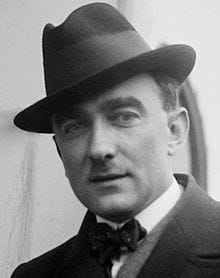Dear André Part 2
On the natural history of an event
This is the second part of a piece I posted several days ago about André Glaz, the psychoanalyst who, in the 1960s, treated various members of my family, including me. He had sex or tried to have sex with many of his female patients, including young children and including me. By sharing…
Keep reading with a 7-day free trial
Subscribe to Everything is Personal to keep reading this post and get 7 days of free access to the full post archives.


